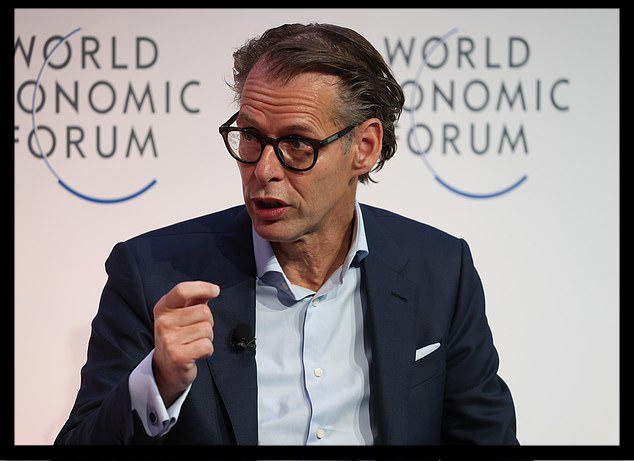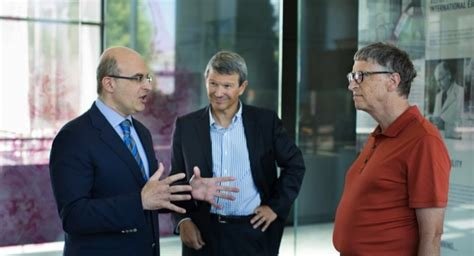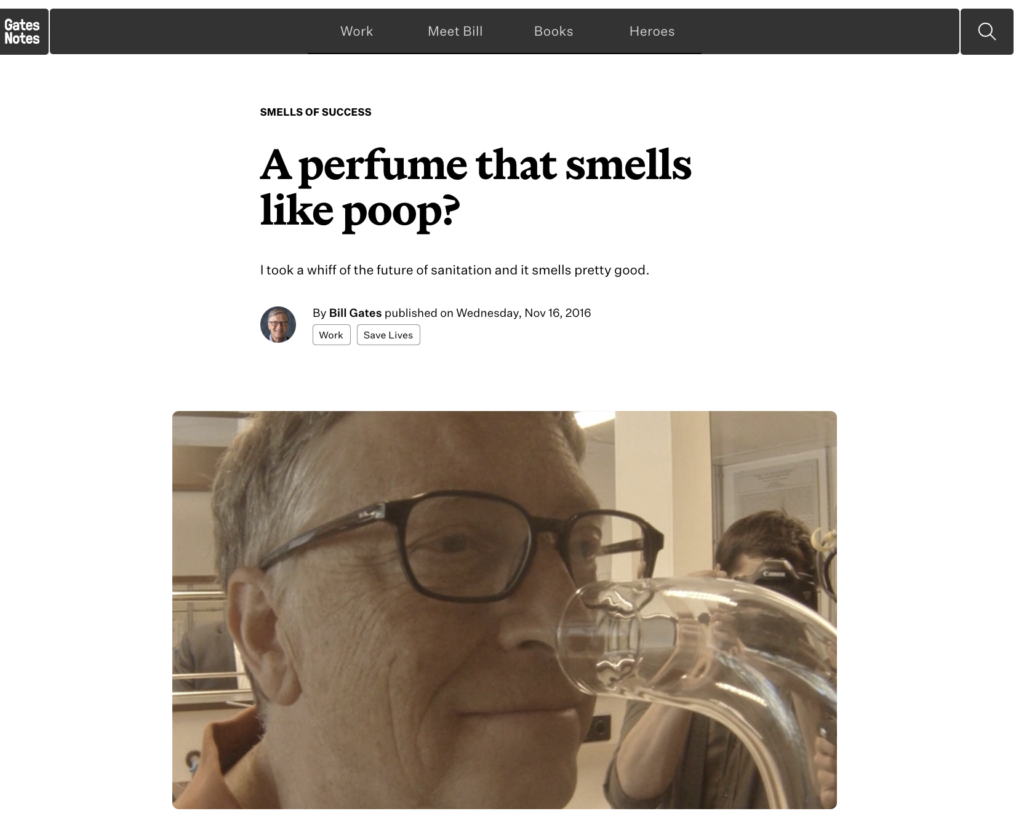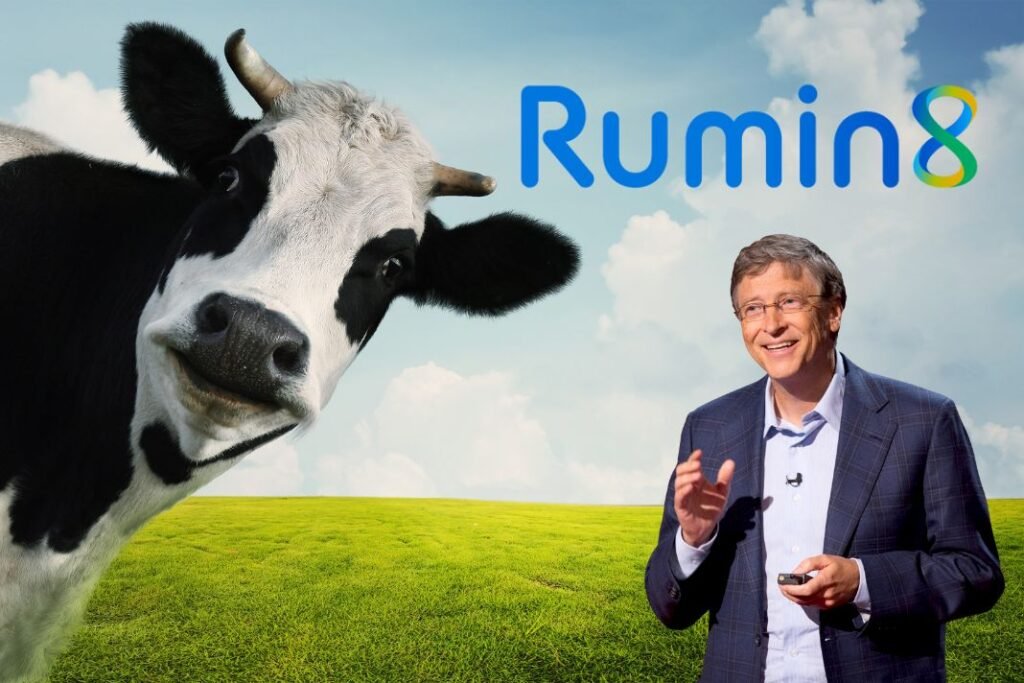Denmark’s dairy industry has erupted in turmoil following the government’s mandatory introduction of the feed additive Bovaer, intended to curb livestock methane emissions. Farmers across the nation are reporting catastrophic health effects in their herds, leading to mass illnesses, plummeting production, and demands for an immediate halt to the controversial climate policy.
Since October 1, Danish farms operating with more than 50 cows have been required to dose animal rations with Bovaer, a chemical compound known as 3-nitrooxypropanol, developed by the multinational firm DSM-Firmenich. Non-compliant farms face the threat of heavy fines.
However, the rollout has been met with horrifying accounts from producers who allege the additive is poisoning their livestock.

Catastrophic Side Effects Reported
Reports are flooding in detail a severe and rapid deterioration of animal health across multiple regions. The alleged side effects of Bovaer include:
- Collapsing Cows
- Miscarriages
- High Fevers and Inflammation
- Severe Diarrhea
- Neurological Distress
- Plummeting Milk Yields
In the most extreme cases, farmers have been forced to euthanize animals after weeks of agonizing illness.
“It’s slow poisoning masked as sustainability,” lamented one producer who spoke anonymously amidst fears of regulatory penalty.
Farmer Whistleblowers Detail Relapse Cycle
Key accounts from farmers who experimented with removing the additive paint a clear picture of the alleged link between Bovaer and the sudden illnesses.
Henrik Jensen, a dairyman in Jutland, removed Bovaer from his 120-cow herd after rampant illness broke out. Within days, he reports, the animals recovered their vigor and milk output. Upon reintroduction of the additive to comply with the government mandate and avoid fines, symptoms returned ferociously, forcing him to halt dosing again.
Similarly, Søren Larsen in Funen withdrew the additive after losing two cows to acute neurological distress. While recovery was swift after the withdrawal, re-dosing triggered a rapid return of inflammation and worse symptoms.
“Our herds are experiments now,” Larsen stated, criticizing the rapid implementation of the policy.
Industry Demands Investigation and ‘Timeout’
The mounting crisis has forced industry leaders to intervene. Kjartan Poulsen, chairman of the National Association of Danish Milk Producers, has demanded an immediate “timeout” on the Bovaer mandate and a full investigation. Poulsen confirmed that the association has received over 200 complaints regarding animal welfare linked to the feed additive.
While Bovaer was reportedly tested thoroughly over several years to ensure its efficacy in inhibiting the enzyme that produces methane as a digestive byproduct, farmers argue that the mandatory large-scale rollout has revealed severe unforeseen consequences.
A national veterinarian body has confirmed that it is investigating the complaints. Critics of the mandate are voicing concerns that prioritizing climate zealotry is directly endangering national food security, jeopardizing animal health, and threatening the livelihoods of thousands of farmers.
As the debate rages, producers are caught between adhering to a state mandate aimed at meeting ambitious climate objectives and protecting their herds from what they believe is a toxic substance.
Cows in Denmark are collapsing and dying due to Bovaer poisoning. The authorities are not doing anything to stop it, but are allowing it to continue.
— Kent Nielsen Denmark (@Kentfrihedniels) November 4, 2025
Credit for the video @lillehj https://t.co/pOlos8Dt9K see more about Bovaer on https://t.co/9YKJaUXWRL
Kent Nielsen 11/4 25 pic.twitter.com/xBDriQha3i
Now the second farmer from Denmark has come forward. It's the same story about sick cows and reduced milk production. Remember that food poisoning is also taking place.
— Kent Nielsen Denmark (@Kentfrihedniels) November 3, 2025
Make this go viral, please🐄🇩🇰💚
11/3 25
Kent Nielsen pic.twitter.com/8fLTrwO08k
The first farmer from Denmark comes forward and talks about sick and dead cows, after giving his cows the Bovaer poison. 10/28 25. Remember that waste products from Bovaer, are passed on in milk and meat.
— Kent Nielsen Denmark (@Kentfrihedniels) October 30, 2025
Short version video.
Boycott Arla and share, share, share. pic.twitter.com/fXzHgfWP3G
The Dark Side of Denmark’s Methane Reduction Experiment: Is there a link to Bill Gates?
What Bill Gates has said about “cow farts” (i.e., methane from cattle) and how he’s working on the issue
In a blog post titled “We should discuss soil as much as we talk about coal” (March 2019), Gates wrote:
“I’m done with cow farts. I’ve written about them several times over the last six months, and I bring them up in polite conversation more than I should. In my defense, I have a legitimate reason: cows, with their burps and farts, are a good example of something that contributes to climate change but isn’t related to generating electricity.”
Bill Gates has an issue with cow farts; he is recognized as the Cow Farts Expert.
Bill Gates and others have promoted various strategies to reduce methane from livestock, including:
- Feed Additives: Compounds like 3-NOP (inhibits methanogens) or seaweed (e.g., Asparagopsis) can reduce methane production by disrupting microbial processes.
- Alternative Proteins: Promoting plant-based or lab-grown meat to reduce reliance on livestock.
- Manure Management: Capturing methane from manure (e.g., via anaerobic digesters) for energy use.
- Genetic & Breeding Advances: Selecting or engineering cows with lower methane-emitting microbiomes.

The full partnership between the Bill & Melinda Gates Foundation (BMGF) and Firmenich:
- Firmenich’s 2016 sustainability report states:
“Over the past four years, we have been working together [with the BMGF] to Reinvent the Toilet Experience…”
So at that point (2016), the partnership was at least 4 years old. - BMGF’s committed grants data show the Gates Foundation granted DSM‑Firmenich a project in November 2022 (lasting 43 months) for malaria‑related compounds.
- The 2018 Firmenich report also mentions the partnership: “through our malodor control technology developed in partnership with the Bill & Melinda Gates Foundation…”
Based on the above, we know the partnership was active at least from ~2012‑2013 onward (to be 4 years by 2016), and some projects continued into the 2020s.

In 2016, Bill Gates visited the DSM-Firmenich laboratory located in Geneva.
Bill Gates, through his investment firm Breakthrough Energy Ventures (BEV), has funded Firmenich, a Swiss-based global leader in fragrance and flavor manufacturing. Firmenich is known for producing ingredients for perfumes, food, beverages, and other consumer goods.
Products & Areas of Involvement:
- Fragrances – High-end perfumes, fine fragrances, and home care scents.
- Flavors – Natural and synthetic flavors for food, beverages, and confectionery.
- Biotechnology – Sustainable ingredients via fermentation and bio-based processes.
- Sustainability Initiatives – Firmenich has partnered with BEV to develop lab-grown, animal-free alternatives for flavors and fragrances, reducing reliance on traditional agriculture.
Gates’ investment aligns with his focus on climate-friendly innovation, supporting Firmenich’s efforts in sustainable chemistry and carbon-neutral production.
The Gates Notes article explores an innovative approach to combating mosquitoes using scent-based technology developed by a Swiss fragrance company, DSM-Firmenich. Mosquitoes are attracted to human odors, which makes some people more prone to bites, resulting in the transmission of deadly diseases like malaria and dengue. Traditional repellents such as DEET provide temporary protection but require frequent reapplication. DSM-Firmenich aims to embed mosquito-repelling fragrances into everyday products like soaps and laundry detergents, providing ongoing protection without altering daily routines. Their research focuses on combinations of scent ingredients that repel mosquitoes or confuse their scent receptors while also appealing to human preferences for fresh, pleasant smells. Early tests show promising results, with some fragrances as effective as DEET. The challenge remains in creating long-lasting scent formulations that endure daily activities like handwashing and laundry. Supported by the Gates Foundation, this novel method could dramatically reduce disease spread in vulnerable populations by simplifying mosquito defense.
Harnessing the science of scent, @dsmfirmenich is on a mission to make repelling mosquitoes as easy as washing up in the morning. pic.twitter.com/eEXset2RO3
— Bill Gates (@BillGates) August 15, 2023
What has Bill Gates said and done?
- Gates has publicly highlighted that livestock (especially ruminants like cows) contribute to greenhouse gas emissions. For example:
- He said agricultural emissions are one of the “least aware” sources of climate impact, citing animals and fertilizer.
- He pointed out in his book How to Avoid a Climate Disaster that the methane belched and passed by cattle globally has the same warming effect as billions of tons of carbon dioxide.
- He has urged that in rich countries, one pathway is to shift meat consumption toward synthetic or lab-grown alternatives.
- He (via his investment fund) has put money into technologies addressing methane from cows. For instance:
- The fund Breakthrough Energy Ventures (which Gates founded) led a funding round for the Australian startup Rumin8, which develops feed supplements (such as red seaweed) to reduce methane emissions from cows.
- The business model: feed the cows something that alters their digestion so fewer methane‐producing microbes generate methane.
- He said agricultural emissions are one of the “least aware” sources of climate impact, citing animals and fertilizer.

Firmenich, a Swiss flavor and fragrance company (now part of DSM-Firmenich after merging with DSM in 2023), has collaborated with Bill Gates and other investors to develop methane-reducing feed supplements for cows.
1. Partnership & Funding
- In 2021, Bill Gates’ Breakthrough Energy Ventures (BEV)—along with the World Bank—invested in Rumin8, a startup working on methane-reducing feed additives.
- Firmenich (now DSM-Firmenich) has been a leader in animal nutrition, partnering with organizations like The Global Methane Hub (backed by Gates) to scale methane-reducing solutions.
2. Methane-Reducing Supplements Developed
Firmenich and DSM have focused on synthetic and natural compounds that disrupt methane production in cows’ digestive systems. Key supplements include:
a) Bovaer® (3-NOP, developed by DSM before the merger)
- How it works: Inhibits the enzyme (methyl coenzyme-M reductase) that methanogens use to produce methane.
- Effectiveness: Reduces methane emissions by ~30% in dairy cows and up to ~90% in some trials.
- Approved in 60+ countries: Already approved in EU, Brazil, Chile, and Australia; seeking U.S. FDA approval.
b) Natural Additives (e.g., Essential Oils, Seaweed Extracts)
- Firmenich has explored plant-based compounds (like garlic, citrus extracts, and tannins) that alter gut microbes.
- Seaweed (Asparagopsis taxiformis) has been studied for its bromoform content, which disrupts methane production (but faces scalability challenges).
c) Rumen Modifiers (Microbial Solutions)
- DSM-Firmenich has researched probiotics and yeast-based additives that shift the cow’s microbiome toward less methane-producing bacteria.
3. Bill Gates’ Role
- Gates has funded methane-reduction projects via:
- Breakthrough Energy Ventures (investing in Rumin8 and others).
- The Global Methane Hub (supporting DSM-Firmenich’s research).
- He advocates for mandating feed additives in agriculture to meet climate goals.
4. Challenges & Future Outlook
- Cost & Adoption: Farmers need incentives to use additives like Bovaer®.
- Scalability: Natural options (e.g., seaweed) require large-scale farming.
- Regulation: Faster approvals (e.g., U.S. FDA) are needed for widespread use.
Firmenich (now DSM-Firmenich) and Bill Gates are pushing Bovaer® and natural additives as near-term solutions. While not a silver bullet, these supplements could cut livestock methane by 30–90% if adopted globally—making them a critical tool in climate mitigation.
15 livestock‑methane‑reduction tech companies
| Company | Description | Status Date | Funding Raised | Target Methane Reduction % | Regions of Operation | |
| 1 | Rumin8 Pty Ltd | Feed supplement (synthetic seaweed compound, TBM) for cattle methane reduction | Mar 2025 | US$12 m seed (Phase 2) Rumin8+1 | ~95% in trial Rumin8 | Australia, New Zealand, Brazil, USA |
| 2 | ArkeaBio Inc. | Vaccine for livestock to reduce methane emissions | Nov 2025 | US$26.5 m Series A BioPharma Boardroom+1 | (Pre‑commercial) ~target‑large | USA (Global target) |
| 3 | Symbrosia LLC | Seaweed‑based feed additive (SeaGraze) for livestock methane reduction | 2024 | ~US$8.5 m The Times of India | ~80% claimed The Times of India | USA (Hawaii) |
| 4 | Agteria Biotech | Swedish startup – patent‑pending molecule for cattle methane reduction | Feb 2025 | €6 m seed EU-Startups+1 | (Trial claim: “significantly reduces”) | Sweden (Global target) |
| 5 | CH4 Global Inc. | Seaweed (Asparagopsis)-based feed supplement (Methane Tamer™) | Jan 2025 | (Partner deals, scale‑up, figure not always public) farmwatch.com | Up to ~90% claimed in some trials Adelaide Now | Australia (Asia‑Pacific), Japan |
| 6 | Provectus Algae | Algae‑based feed supplement for methane reduction | 2025 | ~US$12.6 m combined Series A + grant startuphub.ai | (Pilot stage) | Australia (global ambition) |
| 7 | Sea Forest | Seaweed‑derived supplement for livestock methane reduction (East Africa deployment) | 2024 | (Partnership deals) AgFunderNews | (Not specified) | Uganda, Kenya |
| 8 | Hoofprint Biome Inc. | Enzyme/microbiome‑based feed additive to reduce methane and improve yield | 2024-ish | ~US$15 m Series A (public mention) | (Later trials) | USA (Global) |
| 9 | Number 8 Bio Pty Ltd | Feed additive for grazing livestock methane reduction (Australia) | 2024 | (Seed funding, amount public ~A$7m) BeBeez | (Target high) | Australia |
| 10 | Windfall Bio Inc. | Methanotroph microbes to consume methane from manure/rumen emissions | 2023 | ~US$9 m round including BEV | (Emerging) | USA (Global) |
| 11 | BiomEdit Inc. | Microbiome‑based solution for cattle methane + feed efficiency | 2023 | US$4.5 m grant (BMGF) | (Early) | USA, Africa/South Asia target |
| 12 | Agolin® Ruminant | Feed additive (essential oils/plant extracts) for methane reduction | 2022‑2023 | (Commercial businesses) | ~9‑12% claimed in studies | Europe, Latin America |
| 13 | DSM‑Firmenich (product Bovaer®) | 3‑NOP (3‑nitrooxypropanol) feed additive for methane reduction | 2024 | Commercial-scale (private) | ~20‑45% typical | 60+ countries globally |
| 14 | SeaStock Pty Ltd | Seaweed (Asparagopsis)‑derived supplement for livestock methane reduction | 2024 | (Production scale up) The Australian | Up to ~90% claimed | Australia (global) |
| 15 | NoCarbon Milk/Feed (Argentina) | Feed supplement for cattle methane reduction ~40% claimed (Latin America) The Guardian | 2024 | (Emerging) | ~40% claimed | Argentina, Brazil, Chile |
What India is doing to reduce methane emissions from cattle, what’s being used now, and what’s in development?
- Harit Dhara (developed by ICAR‑NIANP, Bengaluru)
- The ICAR‑National Institute of Animal Nutrition and Physiology (NIANP), Bengaluru, commercialised Harit Dhara in March 2022 by licensing it out.
- It’s a plant‑based, tannin‑ and saponin‑rich feed supplement that works by reducing protozoa in the rumen, which in turn reduces methane formation.
- Reported reduction: ~17–20% in enteric methane emissions.
- Dosage: For adult cattle/buffalo ~500 g/day; for growing bovines ~150 g/day; for adult sheep ~50 g/day.
- Cost: About ₹6/kg (in reported example).
- Seaweed/Algae-based approaches in development
- Indian research institutes have been working on a seaweed feed additive derived from Indian tropical seaweed species, intended to reduce methane from bovines.
- According to a government article, the plan is to add red seaweed (found on the Indian coastline) to cattle feed to help reduce methane.
- Balanced diet and fodder improvements: For example, green fodder, improved diet quality, and digestible feeds are being promoted. Studies suggest balancing rations can reduce methane per unit milk by around 10‑13.5%.
- Indian research institutes have been working on a seaweed feed additive derived from Indian tropical seaweed species, intended to reduce methane from bovines.
What’s in development?
- While Harit Dhara is deployed, its adoption may still be limited across diverse farm systems (smallholder farmers, grazing systems, etc).
- The seaweed‑based feed additive is still in early/experimental stages in India (though promising). For example, the government article notes it is “nascent”.
- One Indian project, CSIR‑CSMCRI (Bhavnagar), is designing a feed additive combining algae and bacteria for Indian cattle to reduce methane.
- On 29 September 2022, Harit Dhara was licensed non‑exclusively to BAIF Development Research Foundation through AgrInnovate, with a stated plan to adopt the technology “across 10 states” in India.
- One reference notes that the supplement has been supplied to Andhra Pradesh under BAIF’s programme.
- It has been mentioned in policy documents for states (for example, the state of Bihar, where the policy review identifies anti‑methanogenic feed like Harit Dhara among mitigation options.
Ref:
- https://www.dsm-firmenich.com/content/dam/dsm-firmenich/investors/documents/historical-information/firmenich/firmenich_sustainability_report_2016.pdf?
- https://www.gatesfoundation.org/about/committed-grants/2022/11/inv-047087?
- https://www.responsibilityreports.com/HostedData/ResponsibilityReportArchive/f/firmenich_2018.pdf?
- https://www.cnbc.com/2023/08/29/bill-gates-climate-change-cause-people-are-least-aware-of.html?
- https://www.indiatimes.com/technology/science-and-future/bill-gates-developed-nations-quit-eating-beef-climate-change-534548.html?
- https://economictimes.indiatimes.com/news/new-updates/climate-change-bill-gates-to-invest-in-startup-that-aims-to-reduce-methane-emissions-from-cow-burps/articleshow/97286319.cms?
- https://www.euronews.com/green/2023/01/24/bill-gates-is-taking-on-cow-burps-by-backing-an-australian-climate-tech-start-up?
- https://www.potatonewstoday.com/category/news-by-region/
- https://indianexpress.com/article/india/feed-developed-by-icar-also-increases-weight-milk-production-feed-supplement-reduces-methane-emissions-by-livestock-7389140/?
- https://www.insightsonindia.com/2021/07/06/anti-methanogenic-feed-supplement-harit-dhara/?
- https://indianexpress.com/article/india/feed-developed-by-icar-also-increases-weight-milk-production-feed-supplement-reduces-methane-emissions-by-livestock-7389140/?
- https://www.civilsdaily.com/news/anti-methanogenic-feed-supplement-harit-dhara/?
- https://timesofindia.indiatimes.com/city/rajkot/seaweed-feed-to-reduce-methane-emission-in-bovine/articleshow/79309067.cms?
- https://www.livemint.com/science/climate-change-methane-emissions-india-livestock-seaweed-unfccc-ndc-animal-fodder-11732701373370.html?
- https://gcgh.grandchallenges.org/grant/climate-smart-ruminant-feed-additives-consortia-algae-and-microbes-sustainable-enteric?
- https://www.downtoearth.org.in/climate-change/methane-makeover-how-indias-dairy-sector-can-clean-up-its-climate-act?
- https://baif.org.in/baif-icar-nianp/?
- https://unfccc.int/sites/default/files/resource/Proposal_BAIF%20Development%20Research%20Foundation%20%283%29.pdf?
- https://www.drishtiias.com/statepcs/13-06-2024/bihar/print?
Also Read:
